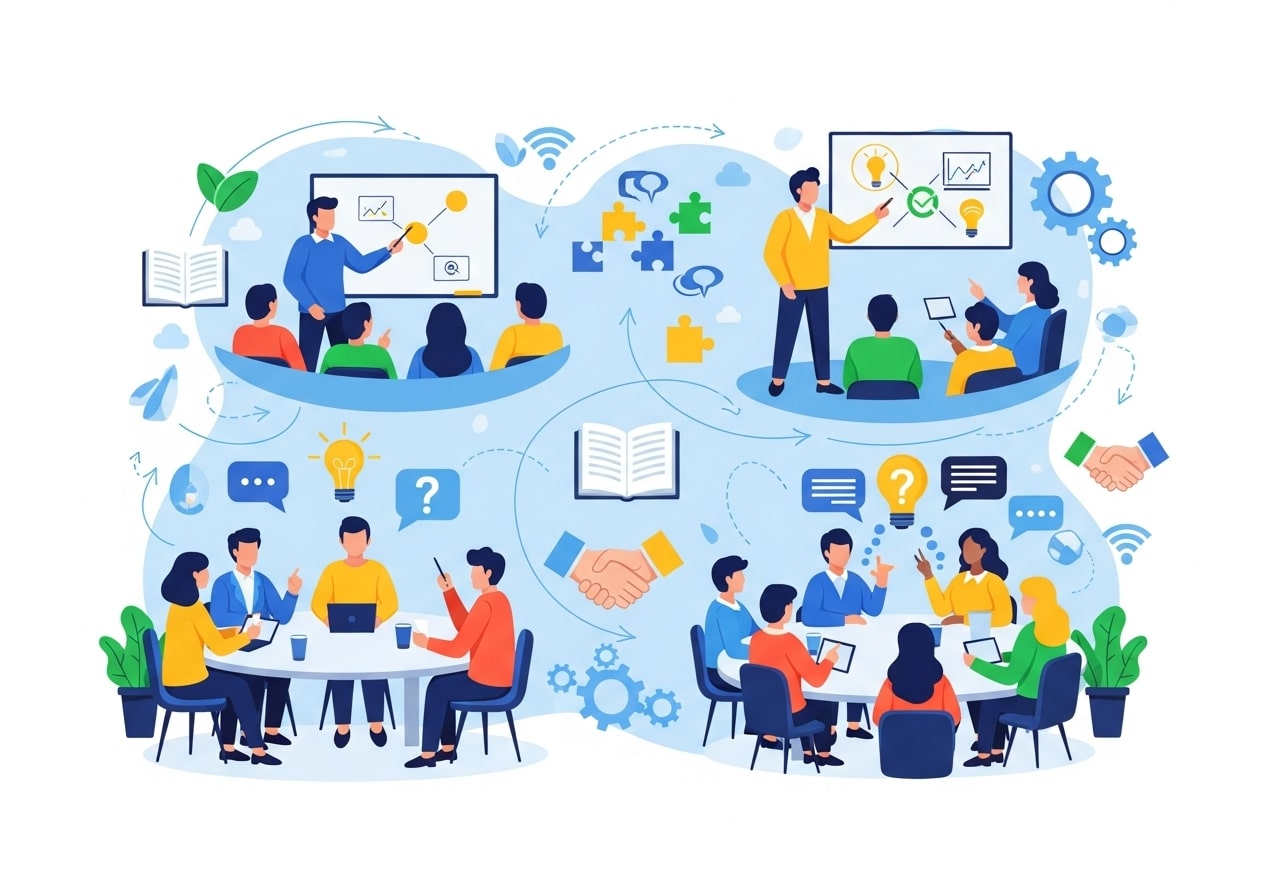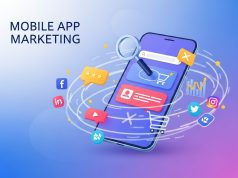The way we learn has been fundamentally transformed by technology. Online course platforms have reshaped education, making it more accessible and adaptable to various lifestyles. But what’s truly revolutionizing the field today? Mobile apps.
The Rise of Mobile Learning Apps
Mobile in Education by the Numbers
Mobile learning, or m-learning, has seen exponential growth in recent years. According to a Statista report, the mobile e-learning market is expected to reach $38 billion by 2025. Why this rapid adoption? The reasons are clear:
- Convenience: Learners can access materials anytime, anywhere.
- Efficiency: Bite-sized content fits seamlessly into busy schedules.
- Affordability: With smartphones as common tools, learners don’t need costly equipment.
Mobile apps market provides a bridge between learners and content that wasn’t previously possible with desktop-based platforms. This shift is evident not just in growing download numbers but also in how user expectations have evolved.
Mobile Learning Analytics
Mobile learning apps are not just tools for delivering content—they also generate valuable data about learner behavior. Analytics dashboards track metrics like lesson completion rates, quiz scores, engagement time, and interaction patterns. This information helps educators and course creators understand which content resonates most, identify struggling learners, and optimize course structure. By analyzing trends over time, instructors can refine teaching strategies, personalize recommendations, and improve outcomes. For organizations, mobile learning analytics also informs ROI calculations, showing the impact of digital training on skills development and performance. Data-driven insights are crucial for maximizing learning efficiency.
Adaptive Learning Technology
Adaptive learning technology allows apps to adjust content based on individual learner performance. By analyzing responses, time spent, and engagement, the system dynamically presents lessons that match a learner’s skill level. This prevents boredom from too-easy material or frustration from overly difficult tasks. Algorithms can recommend additional exercises, videos, or quizzes tailored to knowledge gaps. Adaptive learning ensures a personalized learning journey, supporting mastery rather than rote completion. It benefits learners with diverse abilities, enabling them to progress at their own pace. For educators, it reduces the need for manual content adjustments and helps deliver a more effective, learner-centered experience.
Microlearning for Busy Lifestyles

Mobile apps often deliver content in bite-sized lessons, a concept called microlearning. Short, focused modules—ranging from 3 to 10 minutes—fit easily into busy schedules. Learners can study during commutes, breaks, or small pockets of free time, improving retention and reducing cognitive overload. Microlearning also supports repetition and spaced learning, which reinforces memory. By breaking complex topics into manageable units, apps make learning approachable for people of all ages and backgrounds. This method is particularly effective for skill development, corporate training, or language learning, ensuring learners stay engaged without feeling overwhelmed, while allowing continuous, incremental progress.
Social Learning and Collaboration

Modern mobile learning apps often incorporate social features to enhance collaboration. Discussion forums, group projects, peer reviews, and chat options allow learners to interact, share knowledge, and provide feedback. Social learning encourages community building, fosters accountability, and increases engagement through peer motivation. It also helps learners clarify doubts faster and develop communication skills. In corporate environments, collaborative features support team-based problem solving and knowledge sharing. By integrating social interactions into learning, mobile apps create dynamic, interactive experiences that go beyond solo study. This combination of content and collaboration mirrors real-world learning environments, boosting effectiveness and enjoyment.
Multimodal Learning Approaches

Mobile learning apps leverage multiple forms of content to cater to diverse learning styles. Videos, infographics, podcasts, quizzes, simulations, and interactive exercises make lessons more engaging. Multimodal learning helps learners absorb information visually, aurally, and kinesthetically, reinforcing comprehension and retention. Apps can track which formats work best for individual users and suggest content accordingly. This approach also allows complex concepts to be simplified and made more accessible. Whether for language acquisition, technical skills, or soft skills development, multimodal strategies ensure that every learner has an entry point that suits their preferences, increasing the likelihood of consistent progress and mastery.
Key Features of Mobile Learning Apps Revolutionizing E-Learning

Mobile apps bring a unique set of features and opportunities, which align perfectly with the needs of modern learners and course creators:
1. On-the-Go Accessibility
Gone are the days of being tied to a desk or laptop for learning. With a mobile app, a commute, lunch break, or time waiting at the doctor’s office can all become learning opportunities. Studies show learners tend to favor platforms that offer flexibility, and mobile apps are the answer.
2. Personalized Learning Experience
Advanced mobile apps use algorithms to create tailored content for users:
- Adaptive testing adjusts content difficulty based on a learner’s progress.
- Recommendation engines serve courses or materials aligned with their interests.
By leveraging personalization, apps like Duolingo and Coursera keep users engaged for longer and improve learning outcomes.
3. Push Notifications for Engagement
Notifications are game-changers for engagement. A simple “Don’t forget to complete your daily lesson!” reminder can bring reluctant learners back to the app. Research backs this up, showing that notifications boost app engagement rates by up to 88%.
4. Gamification
Learning is no longer a slog through endless PDFs or wordy videos. Mobile apps gamify the process:
- Badges and rewards for completed lessons.
- Leaderboards to spark friendly competition among peers.
- Streaks to motivate learners to stay consistent.
Apps like Khan Academy implement game mechanics brilliantly, keeping users invested.
5. Offline Access
Not all learners always have access to high-speed internet. Mobile apps now offer offline modes where users can download materials and access them without connectivity, bridging the gap for learners in remote areas.
Redefining Roles for Educators
Mobile apps aren’t just changing the learning experience; they’re reshaping the role of educators, too.
1. Enhanced Communication
Most mobile apps integrate features like instant messaging or discussion forums, breaking down barriers between educators and students. This real-time interaction fosters deeper relationships and helps clarify concepts faster.
2. Analytics for Teaching Success
Many apps feature built-in analytics dashboards. Educators can:
- Identify which lessons keep learners hooked.
- Track student performance.
- Implement data-driven improvements.
These insights help instructors craft better learning strategies, improving outcomes for both learners and themselves.
3. Streamlined Course Management
Mobile apps also simplify the administrative burden:
- Automated grading systems save hours of manual effort.
- Calendars and to-do lists ensure smooth course delivery.
For educators, this means more time to focus on what matters most: teaching.
Transforming Industries Through Mobile E-Learning
The impact of mobile apps isn’t limited to classrooms or traditional education! Here are some other industries being transformed:
1. Corporate Training
Companies like LinkedIn Learning allow employees to upskill on the go. Bite-sized modules fit conveniently into packed schedules, translating into better engagement for corporate learners.
2. Health and Wellness
Mobile apps like Headspace leverage educational principles to teach mindfulness and mental health techniques. Built-in reminders and progress tracking make personal growth more realistic and achievable.
3. Languages
Platforms like Duolingo have revolutionized language learning by providing accessible, gamified lessons for free or for a small fee. Little wonder these apps dominate both app stores and user engagement rankings.
Overcoming Challenges in Mobile E-Learning Development
While the advantages are undeniable, there are challenges that app developers and course creators must address:
1. Device Compatibility
Mobile app users span across various devices with different operating systems, screen sizes, and hardware specifications. Ensuring a seamless experience across all platforms can be a developer’s nightmare, but it’s essential.
2. Monetization without Sacrificing User Experience
Balancing the need for profitability with a great user experience is tricky. Ads and paywalls may alienate users, so offering freemium models or subscriptions is ideal.
3. Maintaining Engagement
The app store is crowded. How do you stand out? Apps need regular updates, innovative features, and consistent communication to retain learners who are swamped with choices.
How to Join the Mobile App Revolution as an Educator or Entrepreneur
Are you ready to leap into the future of learning? Whether you’re looking to build your first mobile course app or improve an existing one, here’s how to start:
- Choose the Right Platform: Platforms like Moodle and Thinkific now offer integration for mobile apps. Utilize these to save time and resources.
- Partner with Experts: Consider collaborating with UX/UI designers and app developers who specialize in educational apps.
- Focus on Feedback: Build your app around active user feedback to ensure constant growth.
For startups, this presents enormous opportunities. With mobile-first strategies, your online course platform can scale faster, reach broader audiences, and enhance engagement effortlessly.
Mobile Learning Is the Future of Education
Mobile apps are more than a convenience; they’ve become a necessity in e-learning. They empower learners to access education at their fingertips, help educators personalize instruction, and foster better engagement globally. If you’re part of this industry or looking to join, now is the perfect time to innovate.
Want to get started or improve your existing setup? Partner with developers and creators who specialize in mobile education, and unlock the immense potential of mobile learning.
Frequently Asked Questions (FAQ)
1. What is mobile learning (m-learning)?
Mobile learning, or m-learning, refers to accessing educational content through mobile devices such as smartphones and tablets. It allows learners to study anytime, anywhere, often in bite-sized modules. M-learning offers flexibility, accessibility, and personalized learning experiences, making education more adaptable to modern lifestyles compared to traditional classroom or desktop-based e-learning.
2. How do mobile learning apps benefit learners?
Mobile learning apps provide flexibility, on-the-go access, and personalized content. Features like gamification, push notifications, and offline access increase engagement, motivation, and retention. Learners can study at their own pace, track progress, and revisit lessons as needed. Overall, apps make learning more convenient, interactive, and tailored to individual preferences.
3. Can educators track student progress with mobile apps?
Yes. Many mobile learning apps include analytics dashboards that let educators monitor lesson completion, quiz performance, engagement levels, and learning patterns. This data helps instructors identify struggling students, adapt content, and implement data-driven strategies to improve teaching outcomes.
4. Are mobile learning apps suitable for corporate training?
Absolutely. Mobile learning apps are ideal for corporate training because employees can access short, focused modules anytime. Apps improve knowledge retention, allow continuous learning without disrupting workflows, and track employee progress. They also support skill development, onboarding, and compliance training efficiently.
5. What challenges exist in developing mobile learning apps?
Challenges include device compatibility, ensuring smooth performance across different operating systems, monetization without harming user experience, and maintaining long-term engagement. Developers must also provide regular updates, innovate features, and optimize UX/UI to retain users in a competitive app market.
6. How can I start creating a mobile learning app?
Start by defining your target audience and learning goals. Choose a platform like Moodle, Thinkific, or custom development options. Collaborate with UX/UI designers and app developers, and prioritize user feedback. Incorporate gamification, analytics, and offline access to enhance engagement. Finally, test and iterate your app to ensure a smooth, effective learning experience.
7. Is offline access important in mobile learning apps?
Yes. Offline access allows learners to download lessons and study without an internet connection. This is especially useful for remote areas or users with limited connectivity. Offline features ensure uninterrupted learning and expand the app’s reach to more diverse audiences.
8. How do mobile learning apps use gamification?
Gamification motivates learners by adding game-like elements such as points, badges, leaderboards, streaks, and rewards. These features encourage consistent engagement, make learning enjoyable, and help users track progress. Gamification increases motivation and retention compared to traditional e-learning methods.
9. Can mobile apps personalize learning experiences?
Yes. Advanced apps use algorithms to recommend lessons based on progress, interests, and performance. Adaptive testing adjusts content difficulty, ensuring learners are challenged without being overwhelmed. Personalized learning boosts engagement, improves outcomes, and creates a more satisfying educational experience.
10. Why are mobile learning apps considered the future of education?
Mobile learning apps combine flexibility, personalization, and interactivity, making education more accessible globally. They empower learners to study anytime, help educators deliver better instruction, and support industries beyond traditional classrooms. With continuous growth in mobile technology, apps are transforming how people learn, making education more inclusive and effective.




